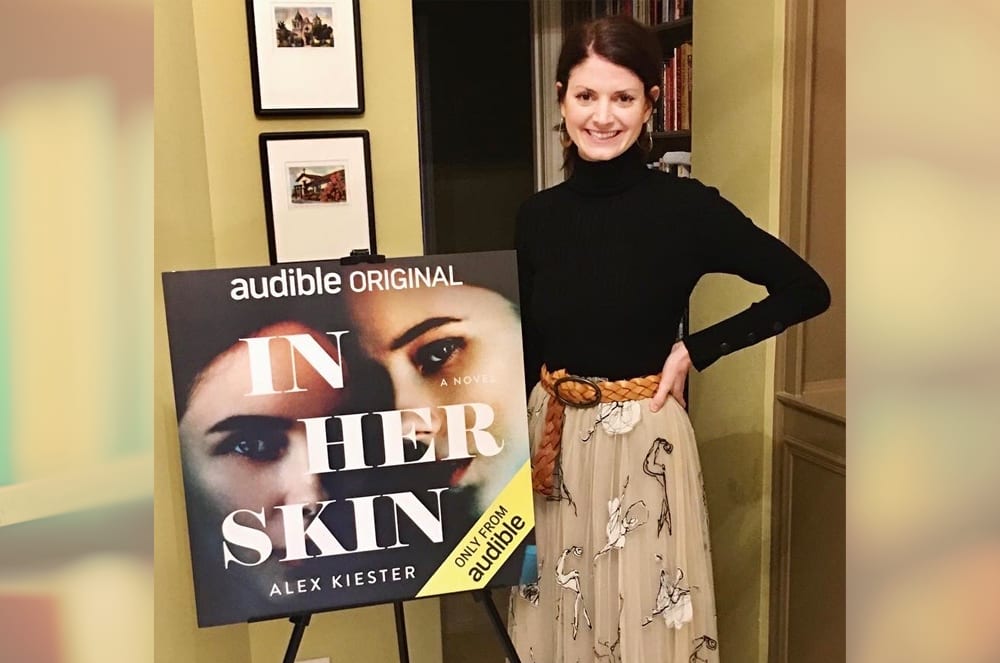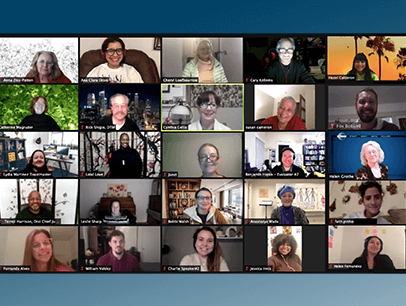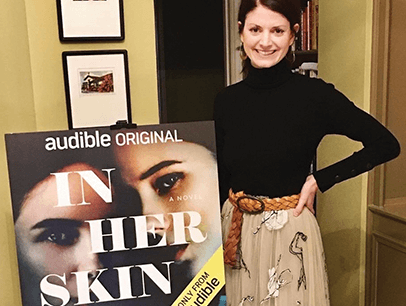
Should professional writers be great speakers?
Of course. Every Toastmaster would agree that effective speaking is important in every profession, and writing—fiction or nonfiction—is no different. That’s why when the president of the Tallahassee Writers Association, M.R. Street, asked the two of us—both Toastmasters in Tallahassee, Florida—to attend one of the group’s meetings and discuss Toastmasters.
She felt the skills Toastmasters teaches could help aspiring authors market their work, speak to large groups, and communicate with other writers.
She was right. Toastmasters provides training that can help writers make a breakthrough. When someone asks, “What’s your book about?” a crisp response could be pivotal to finding an agent or landing a contract. Authors must be able to describe their work clearly and energetically.
The Table Topics® format is excellent practice for that critical “elevator speech.” If you can’t speak confidently off the cuff about your writing, you might not find an audience for that great work of art. And you won’t be very engaging if your explanation is riddled with “ahs,” “ums,” and “you knows.”
Whether you’re working on an informative article, a novel, or a short story, you gain vital information from speaking with people. You must ask good questions, and, most importantly, listen to and understand what has been said. You learn these skills in Toastmasters.
Clubs for Writers
A number of Toastmasters clubs are specifically designed for writers. One is the Authors and Aspiring Authors club in Las Vegas, Nevada. Their agenda evokes the feel of a critique specifically for writers. The Table Topicsmaster is the “Short Story Master,” speakers are “Published Writers,” and evaluators are “Book Reviewers.”
Members of the online club start the meeting by posting “writing wins and struggles” in the chat. Table Topic questions relate to story structure and how to behave at a book signing. At a recent meeting, members held a round-robin evaluation of a book excerpt read aloud by an aspiring author.
Charter member Rhonda Green, DTM, says, “When it comes to speaking, as with most things worth doing, there is no replacement for experience. This is what you get with Toastmasters: practice, practice, practice—plus meaningful feedback.”
Tashi Browne, DTM, says her written words are most compelling when based on her inspirational speeches.
Green also belongs to Writers Ink Toastmasters Club, an online group based in St. Peters, Missouri. The club teaches writing skills and focuses on the business side of authorship: editing and production, marketing and promotion, publishing and distribution. Several times a year, they hold workshops and present topics such as how to get started in writing, selling your work, types of publishing, and building your audience.
In 2005, Michelle Gilstrap, DTM, and Barbara Schiffman founded Toastmasters 4 Writers in the Los Angeles, California, area to teach screenwriters how to pitch their plays. Their goal was to help aspiring authors communicate better with producers and agents.
Today the club helps prospective writers, including novelists, screenwriters, and journalists, build self-confidence in front of audiences, hone their speaking skills, and network. Meeting themes are designed around different genres, such as romance, crime, or mystery. Table Topics focuses on storytelling, round-robin evaluations, or playful prompts for two people. Toastmasters 4 Writers recently hosted workshops for authors on public speaking, being interviewed, and using digital media to promote their work.
Rough Writers Toastmasters Club, in Long Beach, California, was co-founded in 2015 by Susan Cameron, DTM. Instead of discarding your speech after presenting in your club, Cameron encourages members to convert their speeches to short stories or essays.
The Rough Writers website includes writing tips as well as essays based on a writing prompt. The club has published three anthologies of short stories based on members’ speeches.
Readers and Writers Toastmasters club, established in 2005, is for those who want to learn about writing, publishing, and marketing. In a typical meeting of the Redlands, California, club, an aspiring author reads part of a work in progress, and members provide feedback.
 Author and Toastmaster Alex Kieste
Author and Toastmaster Alex KiesteWriters in Toastmasters
Alex Kiester always wanted to be a writer but was mortified about the idea of speaking to agents or interacting with large groups. After attending her first Toastmasters meeting in 2017, she realized she could learn this skill.
Her experiences in the South Austin Toastmasters, in Texas, enabled her to “dream bigger.” In 2019, she published her first audiobook, In Her Skin (about a woman terrified of public speaking), and when it came time to doing media promotion for the book, she was Toastmasters-ready. Practicing in her club gave her the comfort level to deal with media and publicity commitments, she says.
Now, notes Kiester, who has since written a novel, “if I miss a few Toastmasters meetings, my ‘public speaking muscle’ begins to atrophy. Then I know it’s time to exercise it again.”
Laura Crockett, DTM, who writes historical fiction and nonfiction, has a similar story. When she admitted to being nervous about speaking to a group of Princeton University alumni, her mother said, “Join Toastmasters.” After six months, she had the confidence to begin her lecture series.
“Thanks to Toastmasters, I did not embarrass myself or the organization I represented,” says the member of #SeriouslyFun Toastmasters, in Granada Hills, California.
“After speaking [about the book] at a local bookstore and library, I received many positive comments. I attribute that to my time in Toastmasters.”
—Linda FolsomTashi Browne, DTM, a resident of Guyana, was interested in public speaking before becoming a writer. She joined Toastmasters in 2014 and published Stifle Those Limitations: Believing in Possibilities in 2024. She credits Table Topics with helping her give clear, thoughtful answers to questions about her writing pitches. Pointing out the relationship between speaking and writing, Browne says her written words are most compelling when based on her inspirational speeches.
“Toastmasters developed my self-confidence through writing and speaking in a profound way,” says Browne, a member of the Cacique Toastmasters Club in Georgetown, Guyana. “It’s more than standing in front of a room; it’s about writing to connect.”
Linda Folsom, author of the novel Away With Words, credits the Toastmasters 4 Writers club with improving her writing and speaking skills. Club members provided feedback on her manuscript and her pitches.
“After speaking [about the book] at a local bookstore and library, I received many positive comments. I attribute that to my time in Toastmasters,” she says.
Another member of that same club, author Bonnie Schroeder, understands the value of confidently reading aloud in front of an audience. She remembers one event, a book reading, in which an author stumbled and stuttered so badly he had to hire someone to read his work aloud.
Toastmasters can help with all aspects of the writing business—motivation, feedback, connecting with agents, and ultimately, dealing with the public. A Toastmasters club tailored to writers can provide writing and speaking support equal to or sometimes greater than traditional writing groups.
Folsom, of Toastmasters 4 Writers, knows that well. She belongs to one of those writing groups in addition to her Toastmasters club.
“Most of those groups don’t focus on communication skills,” she says. “Someday, those writers, although talented, could have trouble describing their work to an audience.”
Andrew Miller and Walter Blackmon, DTM
Andrew Miller is a member of We Can Speak-Podemos Hablar Toastmasters Club in Tallahassee, Florida. He is a retired biologist who volunteers in prisons, restores antique stained-glass windows, and writes. His website is andrewcmiller.com. W.C. Blackmon, DTM, is a motivational speaker, author, and recording artist. He was profiled in the May 2022 issue of the Toastmaster magazine. Blackmon is a member of three Toastmasters clubs in Tallahassee, Florida, and helps individuals in prison through Toastmasters Gavel Clubs. His website is wcblackmon.com.



 Previous
Previous

 Previous Article
Previous Article

